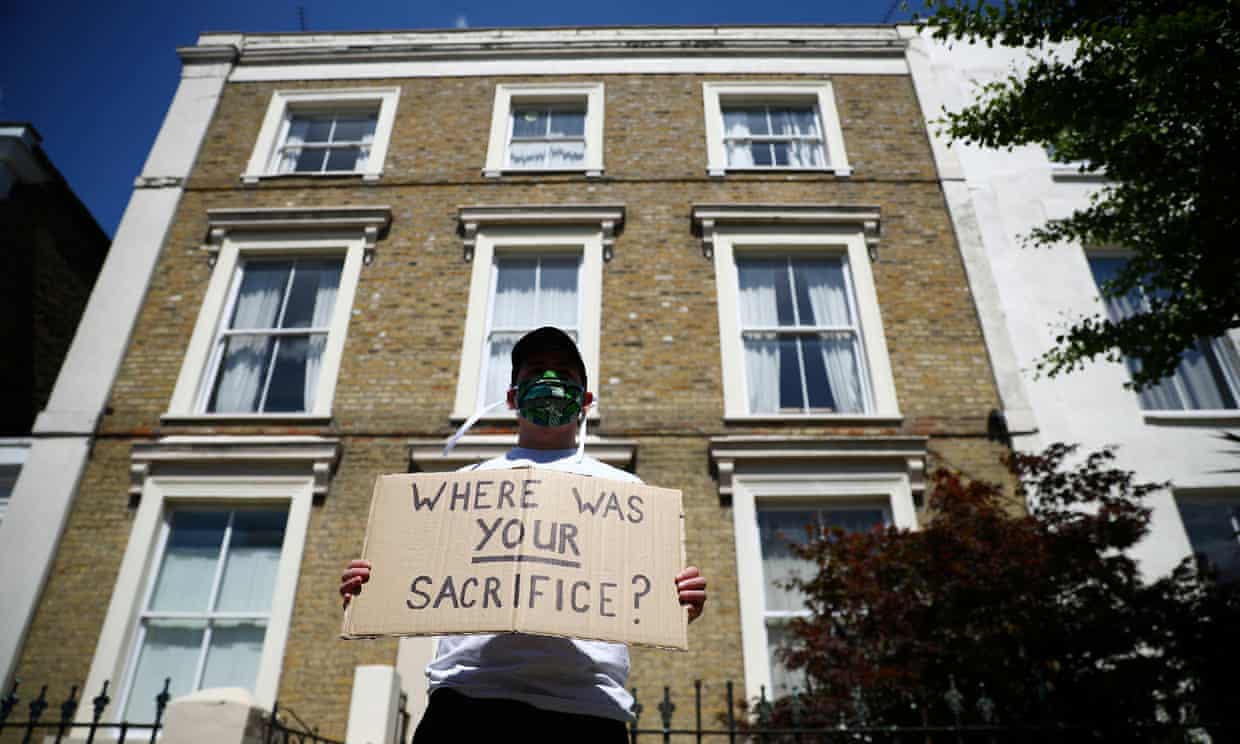
Daily Mail
Daily Mail demand for Cummings to go poses challenge for UK PM
The Tory-backing newspaper is the latest to attack Boris Johnson’s aide. Such criticism will be harder to dismiss
by Jim WatersonWhen the Guardian/Observer and Mirror published fresh claims on Saturday night about Dominic Cummings potentially breaching lockdown rules, Downing Street refused to respond in detail and instead dismissed the outlets as politically motivated “campaigning newspapers”.
It is less clear whether No 10 holds the same dismissive view about the Conservative-supporting Daily Mail, which on Monday used a front-page editorial to demand Cummings is sacked and ran the story across 10 pages of furious coverage.
Under the headline “What planet are they on?”, the newspaper’s editorial said Cummings “violated the spirit and letter of the lockdown ... giving every selfish person a licence to play fast and loose with public health”.
Just months after enthusiastically cheering Boris Johnson to victory in the general election, the Mail directly attacked the prime minister for sticking by his chief aide: “Neither man has displayed a scintilla of contrition for this breach of trust. Do they think we are fools? For the good of the government and the nation, Mr Cummings must resign. Or the prime minister must sack him. No ifs, no buts.”
In the process the newspaper set up a test of its power in the face of a government that has repeatedly made clear its disdain for traditional media outlets. It also serves as a check on whether print newspaper front pages still hold sway in an era of declining circulations and whether the Mail has broken the old newspaper editor’s mantra that you should never launch a campaign that you are likely to lose.
Charlie Beckett, a professor of media and communications at the London School of Economics, said while Johnson had not fully adopted the extreme attitudes towards the media of the US president, Donald Trump, “he and his Downing Street team are certainly picking up on the details of the current White House approach” of muddying the waters where possible.
“For example, attacking the fact-based revelations in the Mirror and the Guardian as ‘inaccurate’ (in what way? tell us!) and as ‘campaigning’ journalism (implying it is partisan and discountable). It is similar to Trump’s cry of ‘fake news’ about any hostile coverage. By attacking the motive of the accuser you avoid addressing the actual charge.”
The Daily Mail – which may now be the UK’s biggest selling print newspaper after the Sun withdrew from official circulation figures last week – holds more political sway with the government. It is aided by directly setting the agenda among its largely Conservative-voted readership and also in terms of its perception among Tory MPs as an early warning system representing the views of Middle England.
This attitude has led to recent Conservative governments repeatedly recruiting political journalists from the newspaper. James Slack, the prime minister’s official civil service spokesperson, is a former Daily Mail political editor, while Johnson’s recently hired political spokesperson is Jack Doyle, a former associate editor at the paper. The prime minister also employs as director of communications Lee Cain, a former reporter for the “campaigning newspaper” Daily Mirror.
Although the Times gave its backing to Cummings, other Tory-supporting papers also raised concerns. The Daily Telegraph, which employed the prime minister until he entered Downing Street, fell short of demanding Cummings’s departure but said his presence was increasingly hard to justify, “Mr Johnson is determined to defend his adviser but he will be the one most damaged by dysfunctionality in the administration, something the country can ill afford.”
Even more damaging, the story continues to be the lead item on MailOnline, which may lack the same political punch but reaches many millions more Britons than its print sister.
Cummings, who has been reportedly keeping a close eye on public opinion by deploying private polling and focus groups throughout the pandemic, appears to be betting the story will ultimately be perceived as a “Westminster bubble” issue only of interest to political obsessives.
On Saturday, the prime minister’s adviser and architect of the Vote Leave Brexit campaign told reporters outside his house they were misjudging the attitude of the nation: “You guys are probably all about as right about that as you were about Brexit: do you remember how right you all were about that?”